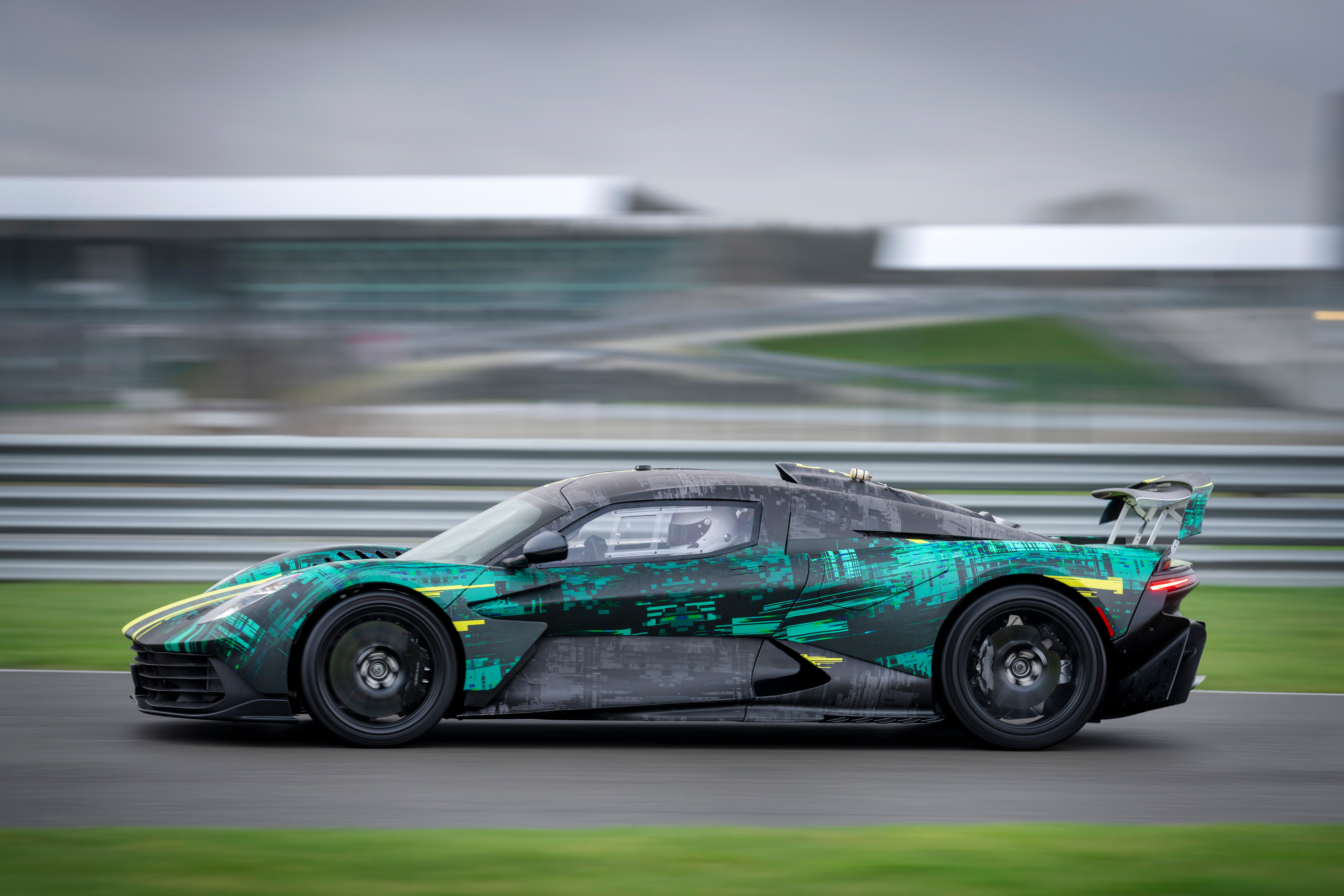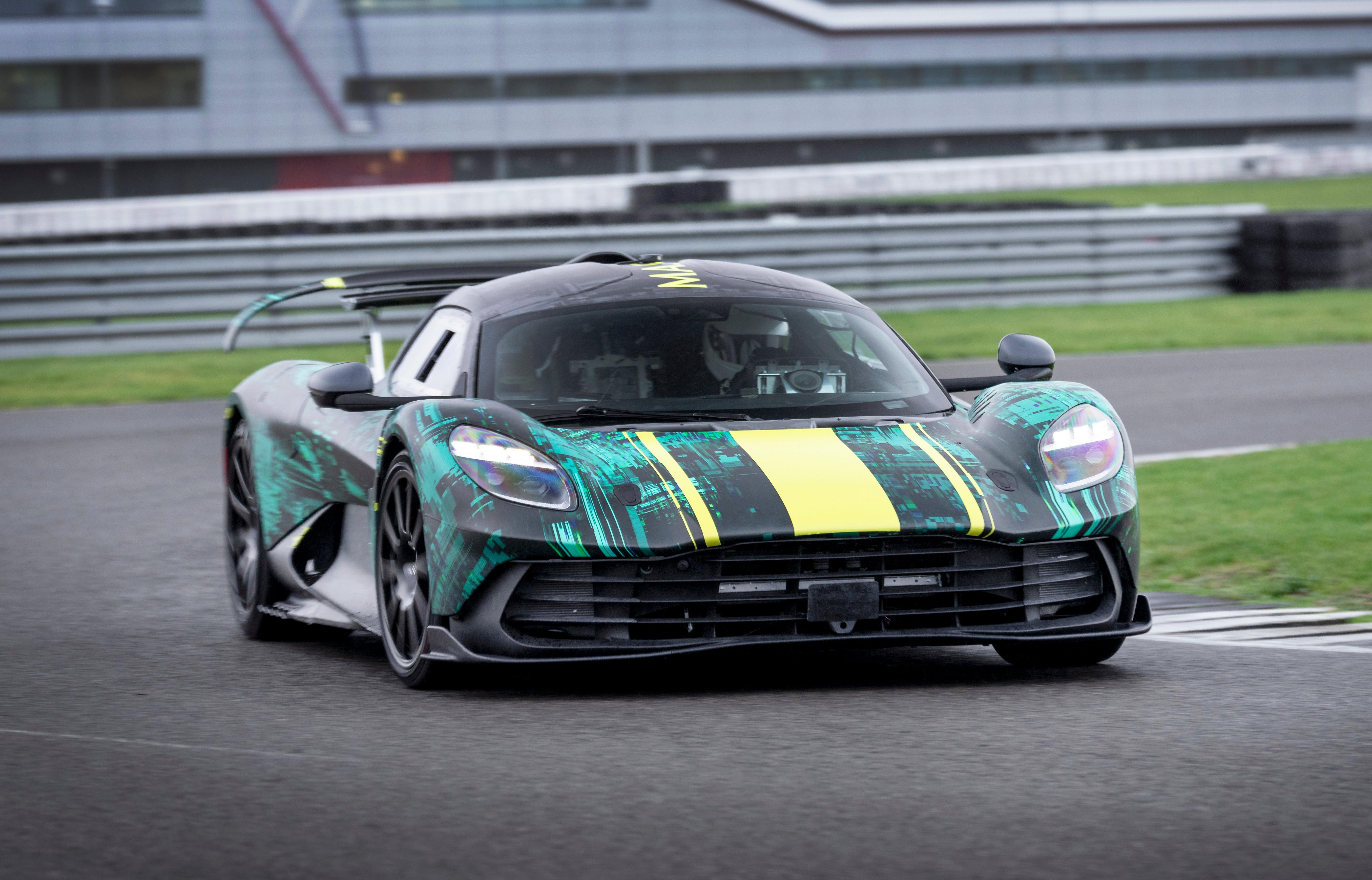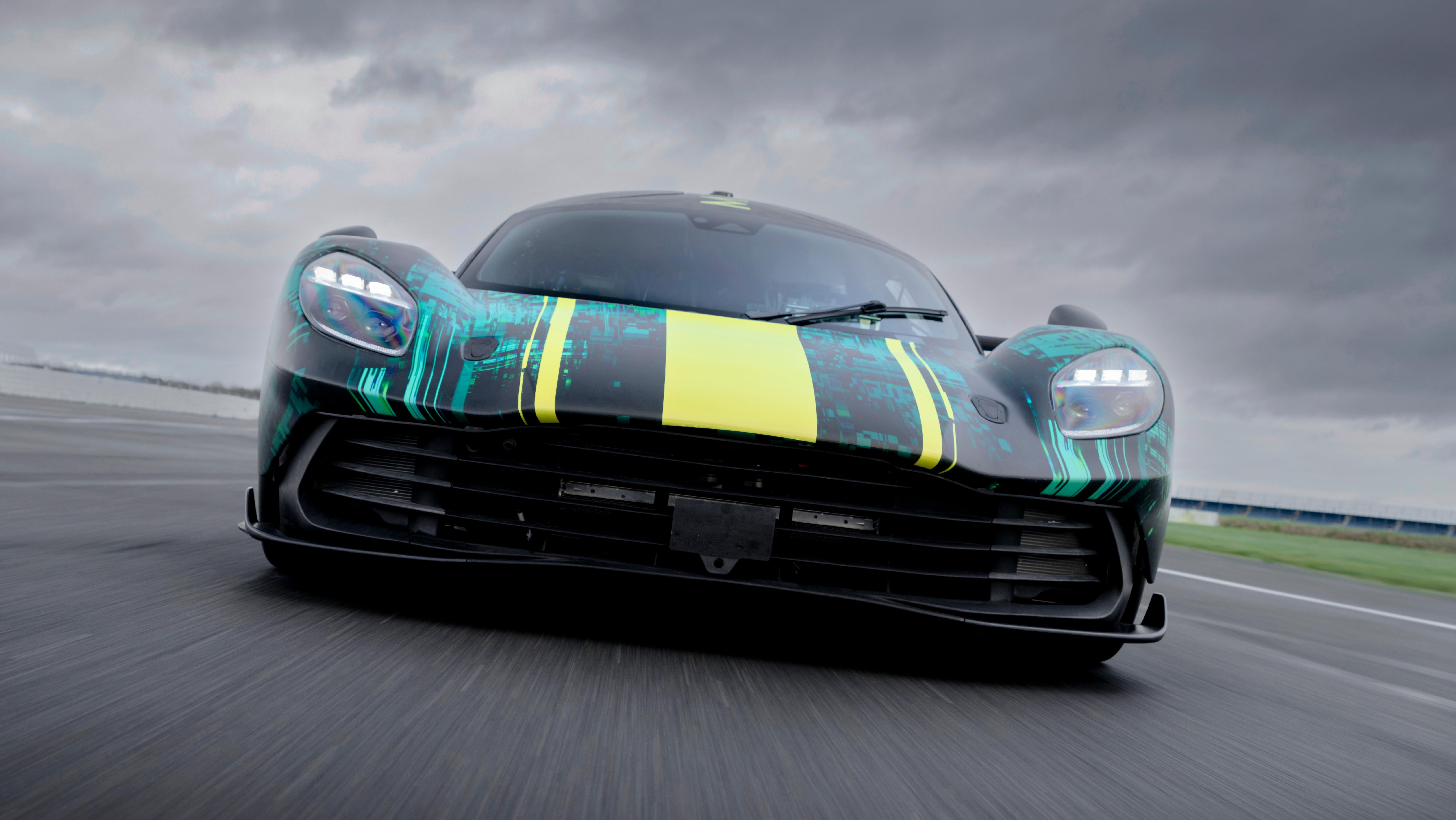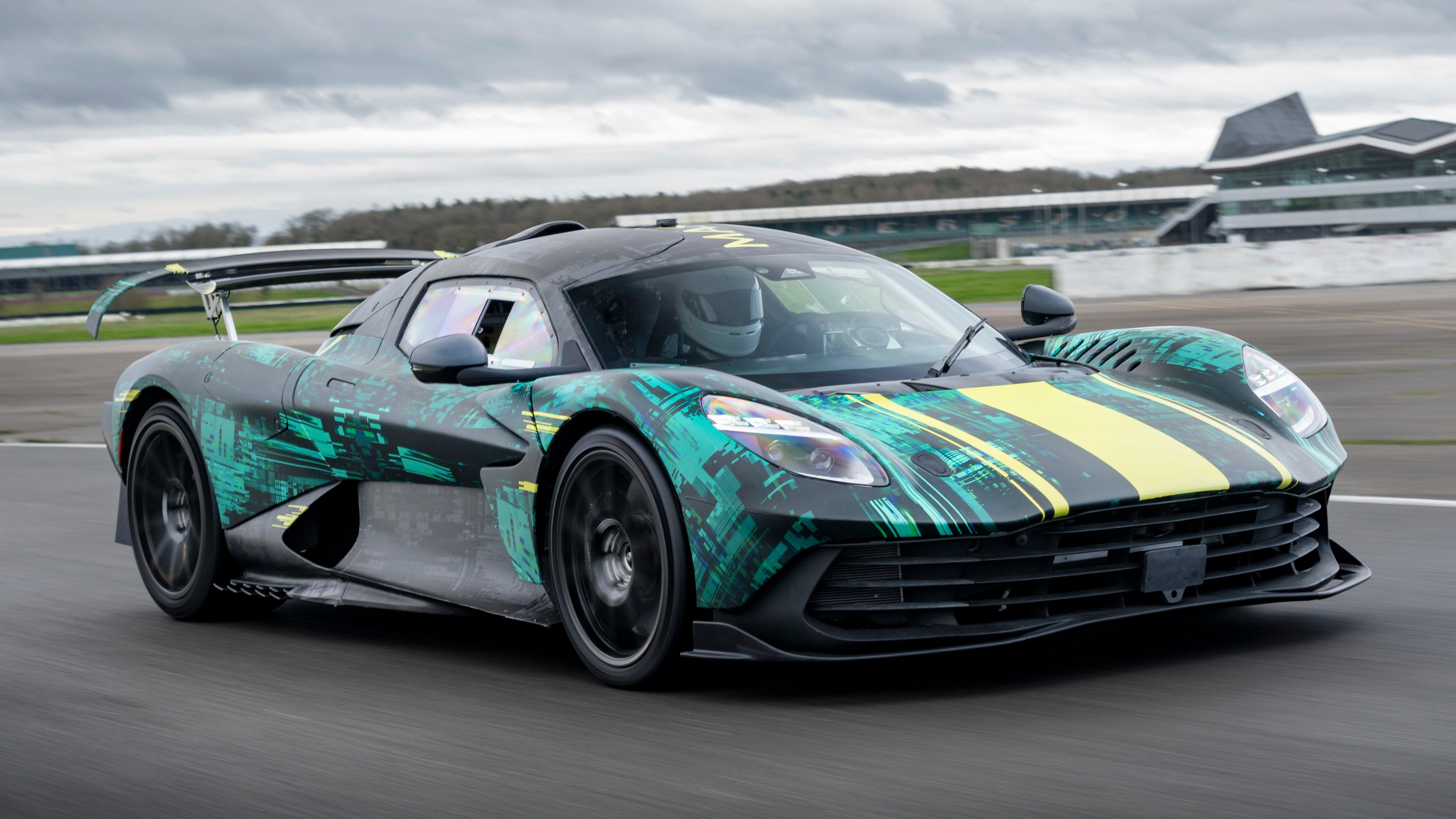Aston Martin Valhalla PHEV Supercar Starts Testing At Silverstone, Revealing New Details
Limited to 999 units, the Valhalla will have 998 horsepower from a hybrid twin-turbo V8.
Aston Martin first unveiled the Valhalla mid-engine supercar in concept form in 2019, saying that it would use a hybrid V6 engine and only 500 would be sold for more than $1 million each. Then, in 2021 Aston debuted the production-intent Valhalla design, announcing that it would instead use an AMG-based V8 hybrid setup and that 999 would be produced for around $800,000 each. Now, as a gift for the holidays, Aston has released the first images of a Valhalla prototype testing on track at Silverstone, reiterating that it will enter production in 2024.
While the design looks largely the same as what Aston has been showing us since 2021, there are a few significant differences. The lower side intakes have been reshaped to be larger and more angular, and the front splitter, side skirts and rear diffuser are lower and larger. The headlight design is less concept-like, and the early model's Valkyrie-like floating taillight segments have been replaced with a simple thin light strip, at least for this prototype. Aston also fitted this prototype with goofy looking production-ready side mirrors, and the roof cutouts for the butterfly-wing doors look bigger.

Aston didn't send a photo of the Valhalla prototype's rear end, but it seems like the awesome top-exit exhaust is intact, as is the awesome roof scoop. This is the first time we've gotten to see the Valhalla's extendable rear wing in action, and it looks like one of the biggest on the market, with tall arms and what look like multiple actively adjustable surfaces. For testing purposes this Valhalla has racing plexiglas side windows and a stripped-out interior, but the production Valhalla thankfully won't.
The Valhalla will use a twin-turbo 4.0-liter V8 with a flat-plane crank derived from the Mercedes-AMG GT Black Series, plus three electric motors — two at the front axle and one integrated with the transmission. That setup gives the Valhalla an estimated 998 horsepower — an improvement over its initially claimed 937 hp, which Aston said would be good enough for a 2.5-second 0-to-60-mph time and a 217-mph top speed. Power is sent to all four wheels, giving the Valhalla a variable torque split and advanced torque vectoring. The plug-in-hybrid system will also give the Valhalla some amount of fully electric range, though likely not a lot, and the electric motors are used instead of having an actual reverse gear and starter/generator.

The brand's engineers have been taking advantage of Aston's Formula 1 connection during Valhalla development, with F1 tech directly influencing the supercar. Aston says the Valhalla will develop 1,323 pounds of downforce at 149 mph, and that rear wing has DRS just like an F1 car, among other active aero tricks. The car's passenger cell is a single super-stiff structure made from carbon fiber, and the driver sits in an F1-like seating position.
Expect Aston to trickle out more prototype images and information in the coming months, with a full reveal of the production-spec car likely to happen in the summer (probably at Goodwood Festival of Speed) before the car enters production by the end of 2024. Aston recently canceled plans for a more entry-level Vanquish supercar that would slot below the Valhalla.

